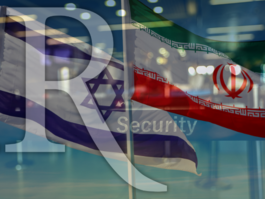We Should Attach Strings to Corporate Bailouts
A Commentary By Ted Rall
It's the end of the world as we know it, and the banks and airlines feel fine because even in the midst of economic collapse, CEOs can sleep soundly at night, secure in the knowledge that the American taxpayer will bail them out. Again.
All they have to do is wait a respectable six to 12 months after the wire transfer clears to start giving themselves raises, renovating executive suites and buying back their stock.
That's exactly what happened during and after the 2008-09 global economic crisis that followed the subprime mortgage meltdown. In 2008 alone, banks that received government bailouts spent $1.6 billion on executive salaries, bonuses and benefits including "cash bonuses, stock options, personal use of company jets and chauffeurs, home security, country club memberships and professional money management," the Associated Press reported.
It has been two weeks since securities markets began a terrifying fall. Again, shamelessly acting under the assumption that we have completely forgotten what they did last time, corporate lobbying groups like Airlines for America are already asking for a $60 billion bailout. Some people in the media are asking the right questions. Steve Inskeep of NPR's "Morning Edition" asked an AFA spokesman about the $10 to $15 billion in profits the airlines have been raking in annually. Didn't they save any of that? According to Bloomberg, the idiots spent 96% of their cash to buy back their stock even as they accumulated a mountain of debt.
As a society, however, Americans ought to be asking a bigger question: Are we going to allow ourselves to be conned by these corporate jerks the way we have been in the past?
Clearly the United States economy cannot recover from the coronavirus shock without a viable transportation system. That includes airlines. Similarly, we can't allow banks to fail. But we should not repeat the mistakes of the administrations of former Presidents George W. Bush and Barack Obama, who bailed out Wall Street at the expense of Main Street.
The federal government handed over $7 trillion interest-free, no strings attached, to the big banks in exchange for increasing liquidity in the credit markets -- which they never did. It's still too hard to get a mortgage or other type of loan. After 9/11, the feds gave $15 billion to the airline industry, which has since treated American Airline passengers like crap.
As with the bank bailout, much of the money was wasted and stolen.
As Bush said, fool me once, shame on -- shame on you. Fool me -- you can't get fooled again. Or something like that.
I have little expectation that they will do this, but the Trump administration should target federal assistance toward ordinary citizens who are losing their jobs rather than corporations. Not only is this the right thing to do; you get twice the bang for your buck. If Obama had helped distressed and unemployed people pay their mortgages and rent, it would have kept them in their homes, propped up the underlying mortgages that tanked derivatives and, therefore, saved the banks indirectly. Reducing the number of evictions would have mitigated the real estate crash caused by the deterioration of vacant houses.
To their credit, White House officials seem to be considering direct payments to prop up the economy during the coronavirus crisis. There's even talk of a $1,000-per-person-per-month guaranteed minimum income reminiscent of Andrew Yang's proposal. Seems like a lot of money but not when you compare it to the defense budget. Maybe we can take a break from killing Muslims?
But I would be surprised if they were to do that. The political class is just not that into us.
Trump should offer distressed corporations two options in exchange for being rescued from the financial downturn caused by the coronavirus pandemic.
Option one: nationalization.
If we save your automobile company or your oil company or your airline, we own it. All your stock gets transferred to the property of the U.S. Treasury. If the bailout is partial, we take a proportionate share based on a discounted rate of your devalued stock prices. If you are a competent CEO, you get to stay, but obviously at a greatly reduced salary. Once you start to do better, we deserve your profits.
You're welcome.
Option two: We get to tell you how to run your company.
I'm picking on banks and airlines because they are particularly mean to their customers, but you can extrapolate these principles to other lines of business.
If the U.S. taxpayer saves your bank, the U.S. taxpayer has the right to be treated like a human being when he or she does business with you. That means closing the gap between interest rates. It's insane that banks pay out 0.5% interest on savings accounts while taking in 25% from credit cards. Before we dole out money to these institutions, they must promise in writing to do better.
Big bailouts come with big strings. Not one dime of taxpayer money should ever find its way into executive salaries. And no stock buybacks.
Think I'm being draconian? If so, think of all the times you have asked an institution like a bank or an airline to cut you a break. How many times did they say yes? They had all the power and used it to crush you. Thanks to the coronavirus, the tables are turned. We, the people, have the power over the money that these jerks need to survive.
Let's leverage the hell out of it.
Ted Rall, the political cartoonist, columnist and graphic novelist, is the author of "Francis: The People's Pope." He is on Twitter @TedRall. You can support Ted's hard-hitting political cartoons and columns and see his work first by sponsoring his work on Patreon.
COPYRIGHT 2020 CREATORS.COM
See Other Political Commentaries.
See Other Commentaries by Ted Rall.
Views expressed in this column are those of the author, not those of Rasmussen Reports. Comments about this content should be directed to the author or syndicate.
Rasmussen Reports is a media company specializing in the collection, publication and distribution of public opinion information.
We conduct public opinion polls on a variety of topics to inform our audience on events in the news and other topics of interest. To ensure editorial control and independence, we pay for the polls ourselves and generate revenue through the sale of subscriptions, sponsorships, and advertising. Nightly polling on politics, business and lifestyle topics provides the content to update the Rasmussen Reports web site many times each day. If it's in the news, it's in our polls. Additionally, the data drives a daily update newsletter and various media outlets across the country.
Some information, including the Rasmussen Reports daily Presidential Tracking Poll and commentaries are available for free to the general public. Subscriptions are available for $4.95 a month or 34.95 a year that provide subscribers with exclusive access to more than 20 stories per week on upcoming elections, consumer confidence, and issues that affect us all. For those who are really into the numbers, Platinum Members can review demographic crosstabs and a full history of our data.
To learn more about our methodology, click here.



